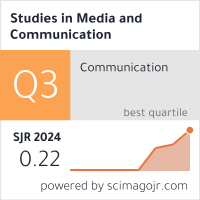How the Language Competence of International Students is Culturally Oriented When Learning Indonesian Language
Abstract
Language learning is often viewed as a task focused on the acquisition of linguistic skills, disregarding the cultural context in which the language is spoken. This approach to language learning often leads to ineffective communication and misunderstandings that arise due to cultural differences. The article discusses the challenges that BIPA students in West Sumatra face when attempting to develop their communicative abilities and cross-cultural understanding. The primary objective of this article is to explore the relationship between language learning and cultural awareness, particularly within the framework of BIPA instruction. The article aims to highlight the importance of integrating cultural knowledge with language learning to develop effective communication skills in a foreign language. The authors also seek to demonstrate how the Minangkabau tradition can be used as a foundation for fostering intercultural understanding and communication among BIPA learners. They conducted research using two instructional and conditional features of BIPA learners' knowledge to explore the impact of learning Indonesian with a focus on culture and the ability to communicate across cultures. They also used a qualitative approach to highlight strategies and methods for fostering intercultural understanding and communication grounded in the Minangkabau tradition. The data for this study were collected by using interviews with BIPA educators and students in West Sumatra. The study demonstrated that integrating cultural knowledge with language learning is essential for the development of effective communication skills in a foreign language. The research shows that BIPA students who are exposed to cultural elements along with language instruction demonstrated a higher level of communicative ability and cross-cultural understanding. It also pictures out various strategies and methods for fostering intercultural understanding and communication grounded in the Minangkabau tradition. However, the authors also note the serious challenges that West Sumatra's BIPA educators and students face in gaining this crucial understanding. In conclusion, the article emphasizes the importance of integrating cultural knowledge with language learning to develop effective communication skills in a foreign language. The research also demonstrates the positive impact of cultural elements in language instruction, particularly within the framework of BIPA instruction. It provides valuable insights for BIPA educators and students who seek to enhance their communicative abilities and cross-cultural understanding.
Full Text:
PDFDOI: https://doi.org/10.11114/smc.v11i6.6020
Refbacks
- There are currently no refbacks.
Studies in Media and Communication ISSN 2325-8071 (Print) ISSN 2325-808X (Online)
Copyright © Redfame Publishing Inc.
To make sure that you can receive messages from us, please add the 'redfame.com' domain to your e-mail 'safe list'. If you do not receive e-mail in your 'inbox', check your 'bulk mail' or 'junk mail' folders.
If you have any questions, please contact: smc@redfame.com
------------------------------------------------------------------------------------------------------------------------------------------------------

